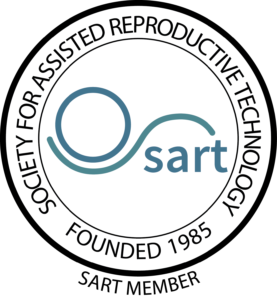IVF fertilization can be an important step on a patient’s path to parenthood
Patients undergoing in vitro fertilization, or IVF, at our Tennessee fertility clinic will have their eggs and sperm undergo IVF fertilization. This fertilization occurs when an embryologist places the egg and sperm together in our lab. Successful fertilization results in embryo growth, which can lead to the development of a healthy pregnancy.
How the embryologist performs IVF fertilization
Embryo growth during an IVF cycle involves a series of steps. The growth can occur after a doctor at our Tennessee fertility clinic retrieves eggs from the female patient or an egg donor and the male patient or a sperm donor provides a semen sample.
Examining the eggs and sperm. After receiving the eggs and sperm, the embryologist analyzes them with a high-powered microscope to determine the maturity and quality of each egg. The lab team also looks at the count, shape and movement of the sperm.
Preparing the eggs. Next, the embryologist places the mature eggs in petri dishes with a special culture medium that supports cell growth. They then put the dishes in an incubator that mimics the natural conditions of the body.
Combining the eggs and sperm. When the eggs are ready, the embryologist places sperm with each egg. This conventional method of fertilization allows the sperm to penetrate and fertilize the eggs without assistance.
If the male patient has a low sperm count or other sperm abnormalities, the doctor might recommend intracytoplasmic sperm injection, or ICSI. This involves the embryologist injecting a single healthy sperm into the center of each egg.
Incubation. After combining the eggs and sperm, the embryologist places them in an incubator for up to six days. Embryo growth will likely occur during this time.
Our highly qualified laboratory team utilizes leading-edge techniques to help ensure the best possible results during IVF fertilization.
Next steps after embryo growth
When the eggs and sperm result in embryos, the doctor helps the patients decide whether they’d like to utilize preimplantation genetic testing. This testing can reveal whether any of the embryos have chromosomal abnormalities.
PGT-A, or preimplantation genetic testing for aneuploidy. This evaluation allows the embryologist to determine whether an embryo is aneuploidy, which means it has too few or too many chromosomes. Aneuploidy can cause miscarriage, implantation failure or issues like Turner syndrome or Down syndrome.
PGT-M, or preimplantation genetic testing for monogenic/single gene defects. PGT-M consists of the screening of embryos for single-gene defects like cystic fibrosis.
The results of these tests help the doctor and patients determine which embryo to transfer. The doctor then transfers the chosen embryo into the uterus of the patient or the gestational surrogate.
The doctors and nurses at our Tennessee fertility clinic support our patients through each step of the IVF process. The quality care we provide often results in the patients starting and growing their family. Contact us for more information about embryo growth during IVF fertilization.






